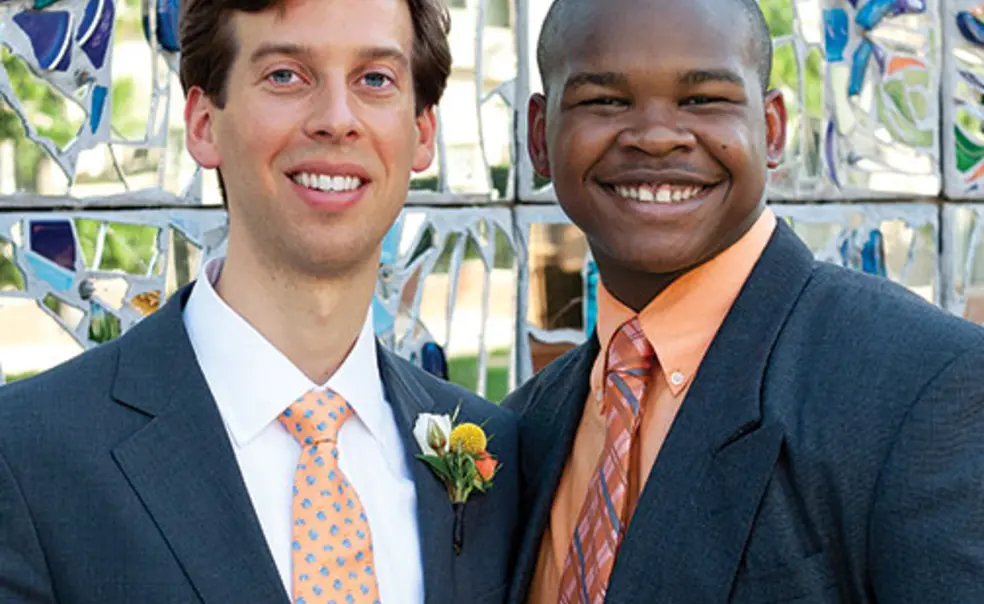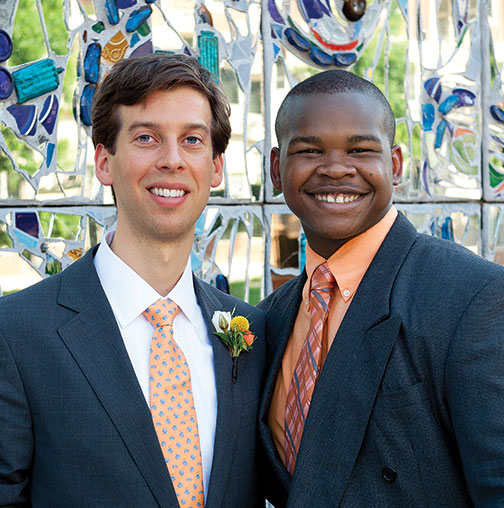Essay: Volunteering as a Mentor, and Becoming Family
I have made a lot of friendships in my 34 years, from grade school to graduate school, and on through working life. But of all the connections I’ve made along the way, one of my most lasting relationships has been with my Little.
In my late 20s, as a recent transplant to St. Louis following law school, I signed up to volunteer with Big Brothers Big Sisters of Eastern Missouri. Jordon, my Little, was 16 years my junior, a student in middle school. He lived with his mother, a single parent, in a neighborhood unfamiliar to me. He was black. I was not.
Jordon and I have been matched for more than six years, longer than I have known my wife. At first, I thought our differences would stand out far more than our similarities, but they soon proved superficial, no deeper than our distinct skin tones. In our time together, we have gone fishing, bowling, and sledding in the park. We have baked scones and flipped pancakes. I attended his Thanksgiving dinner and he attended my wedding. During our outings, we have talked about school, jobs, relationships, and things that just make us laugh — in short, what friends talk about, the things that help define who we are.

I recognized in Jordon a version of myself — that teenager eager to get out of the house and escape the doldrums of the familiar. His mother was no less recognizable. Like the parents from my own childhood neighborhood, Jordon’s mother was committed to providing a better life for her child, albeit with fewer resources at her disposal. She took him to Boy Scouts on Saturdays and to church on Sundays. She enrolled him in Big Brothers, despite a waiting list stretching into the thousands. And, most critically, she put him on the 6 a.m. bus to the suburb of Chesterfield every day so he could attend a good school. Like my own parents, she was committed to her child’s education.
As our differences faded, so too did any sense that I was volunteering, a term that suggests that I am giving something up by seeing Jordon. But I never sense that I am going without when we get together.
Finding time for friends can be a challenge in your 30s. Between work and family, there are so many competing interests. My wife is always there for me, but her interest in the latest superhero movie or the newest greasy spoon has its bounds. And that’s where Jordon steps in. Jordon, a high school senior, does not have a work calendar or kids to pick up. You tell him the time, and he is ready.
A few years ago, Jordon and his mother invited me to a family reunion on the eve of Thanksgiving. The reunion was in a gymnasium, a testament to the number of cousins and second cousins gathered from around the country. I walked in and greeted Jordon, who was serving pumpkin pancakes (a recipe we had made together just weeks before). I took my spot at the end of the food line. The young man in front of me turned to say hello. He held out his hand and asked me if we might be related. Even though no one looked like me, marriage or adoption could have made some relation possible.
I shook his hand and said “no,” adding that I was Jordon’s “big brother.” His face registered excitement as he explained that he was related to Jordon, and so we, too, must be related. At the time, I just laughed. But now, looking back on six years of friendship, the young man was closer to the truth than not. Jordon and I may not be related, but we are certainly family.













No responses yet